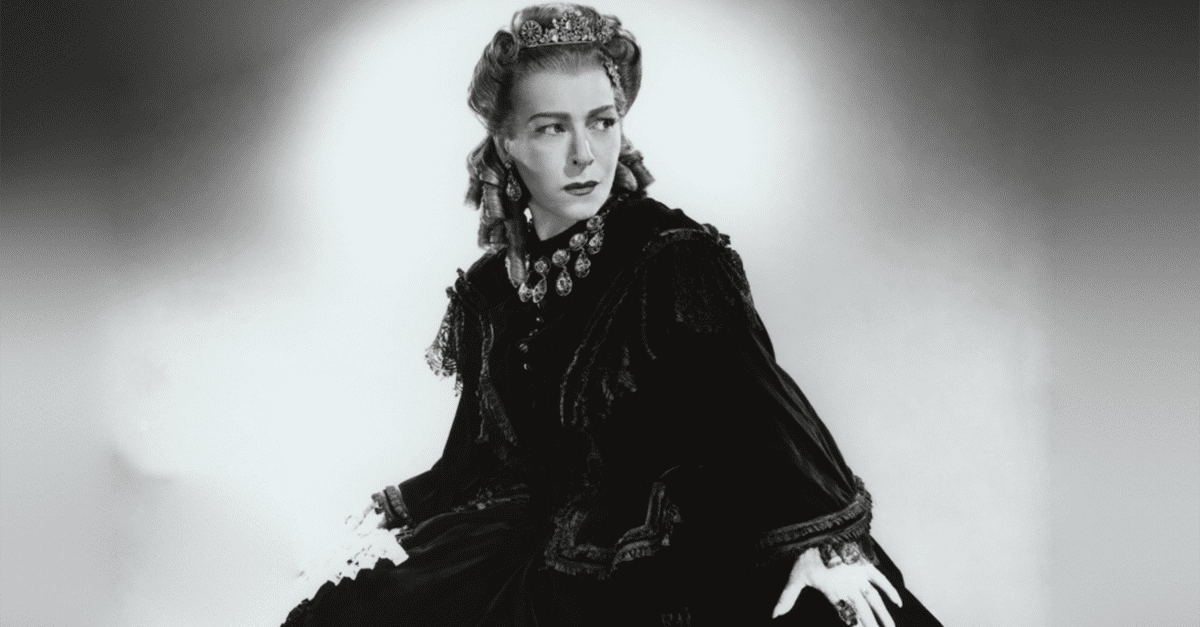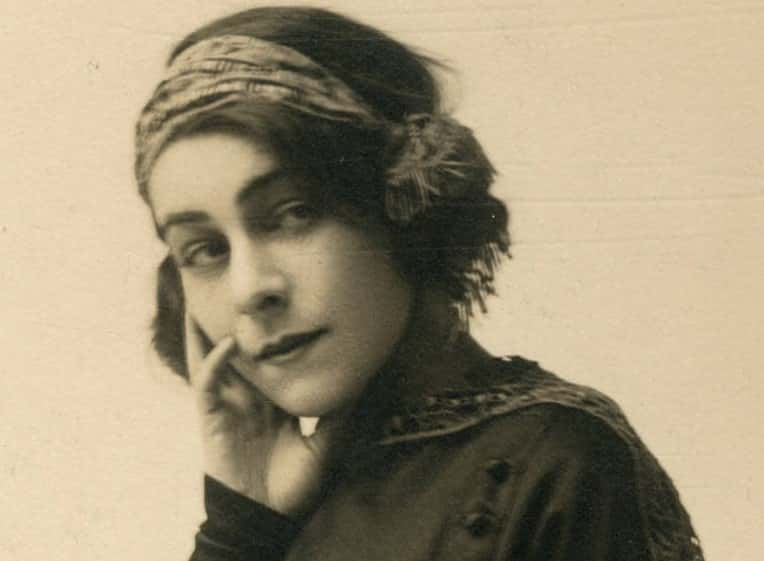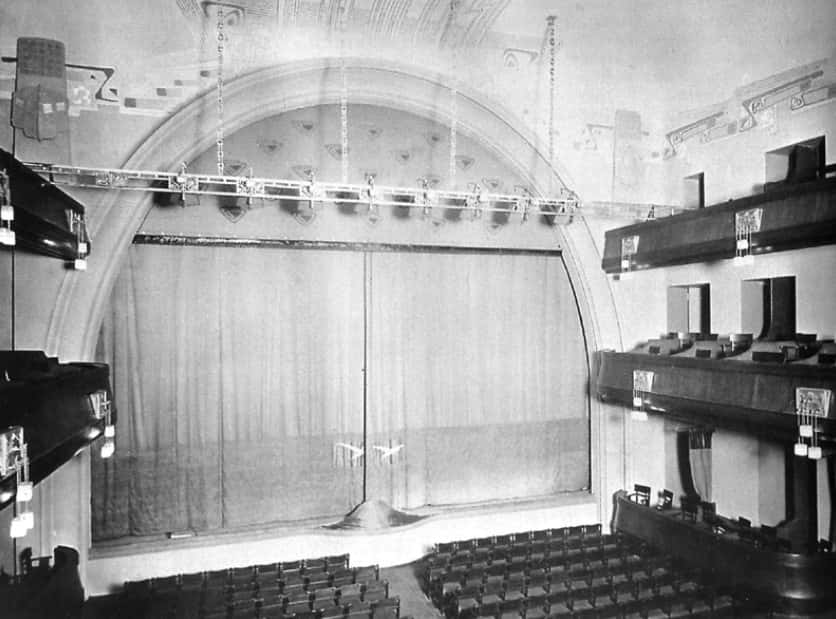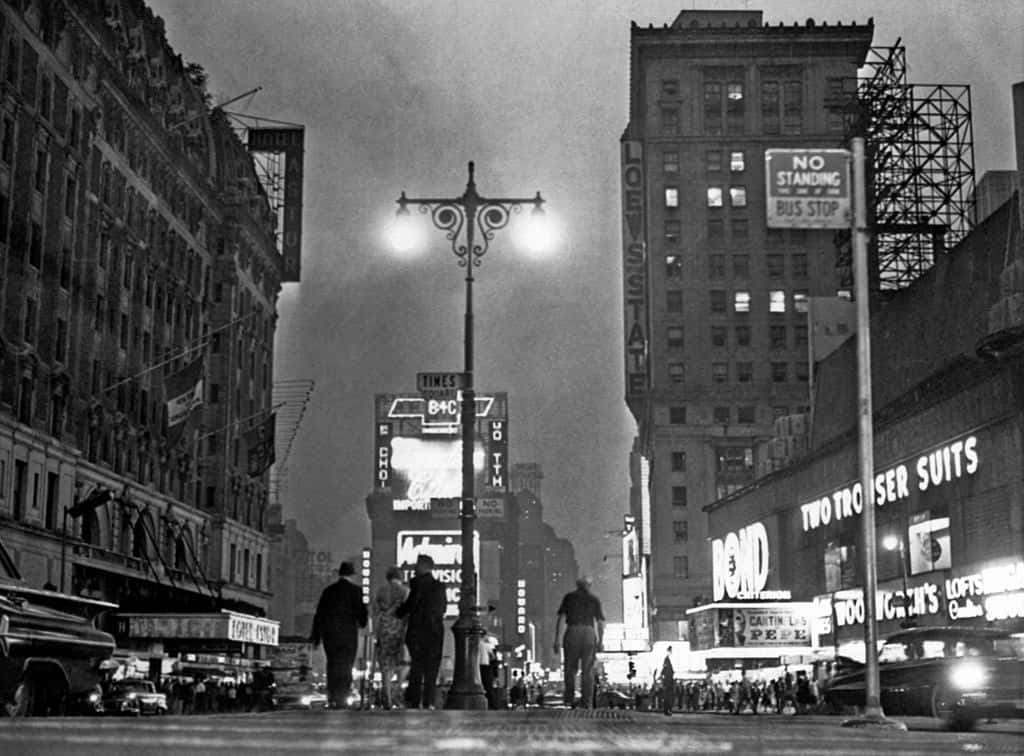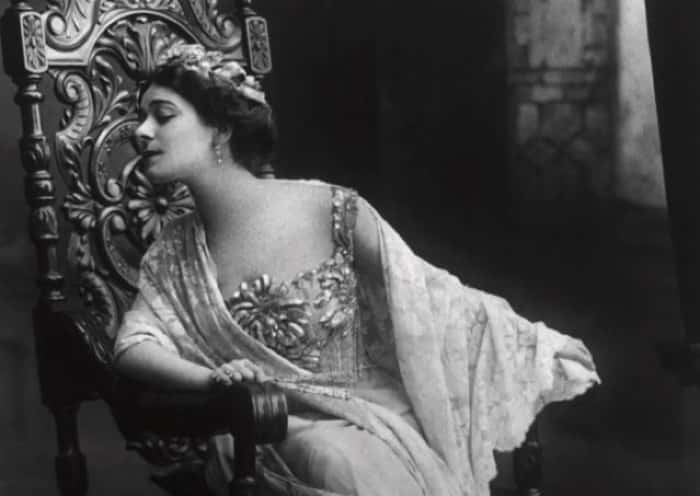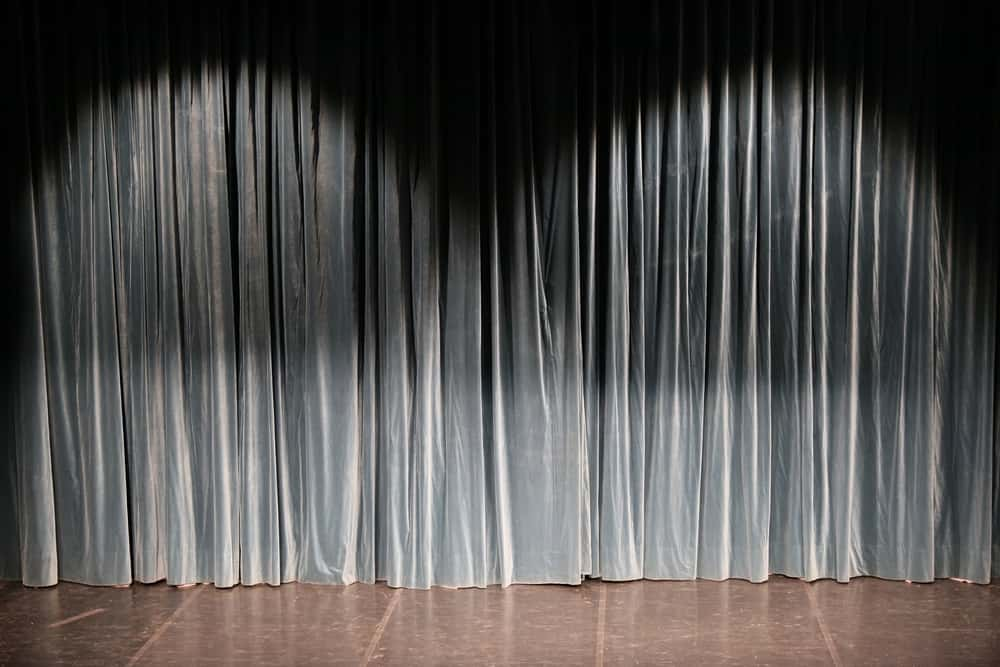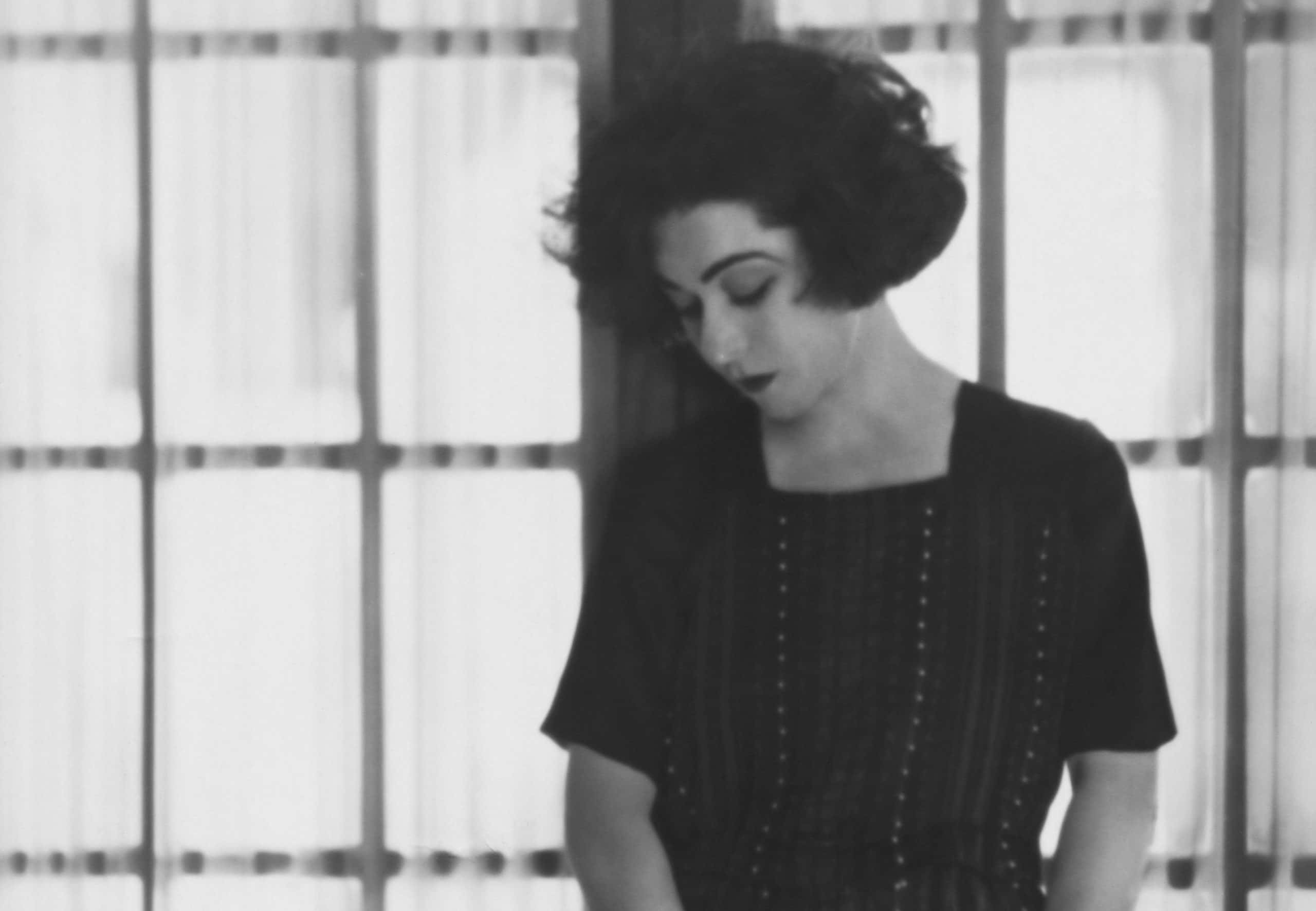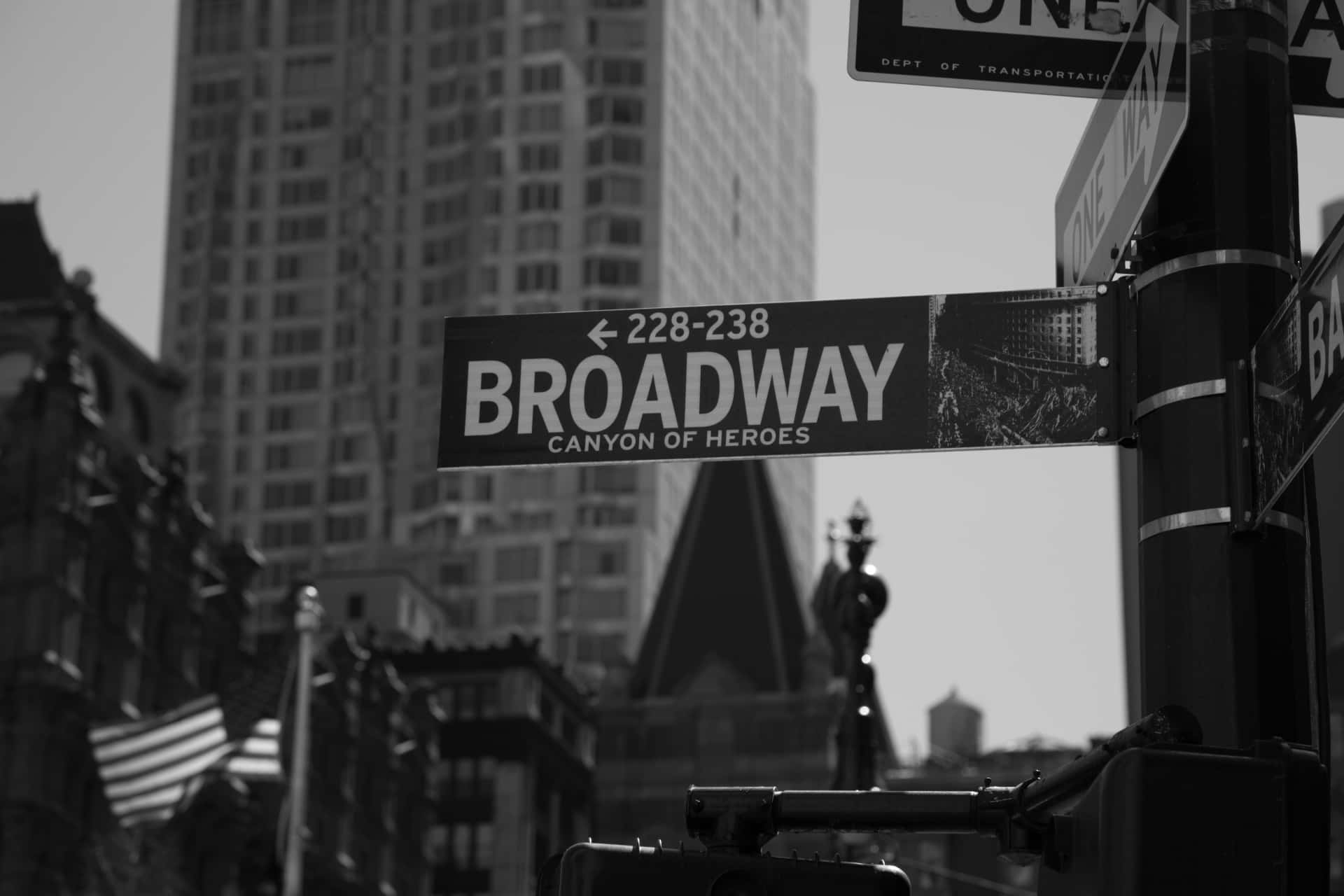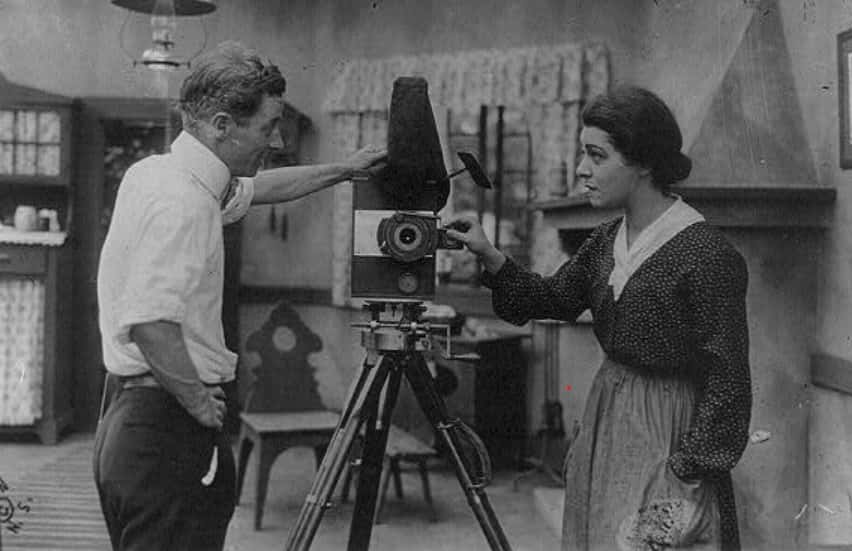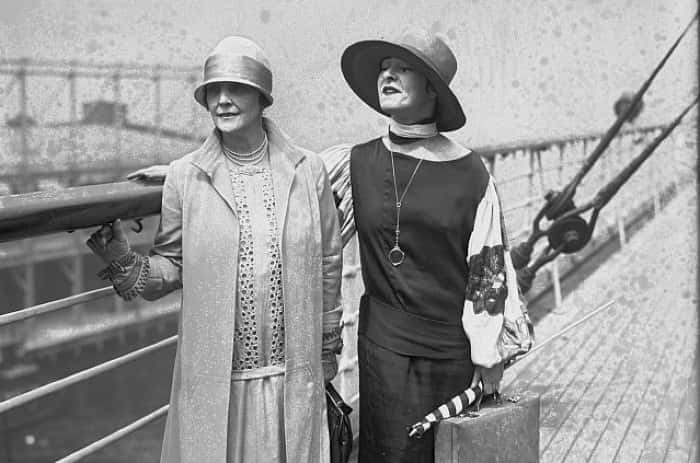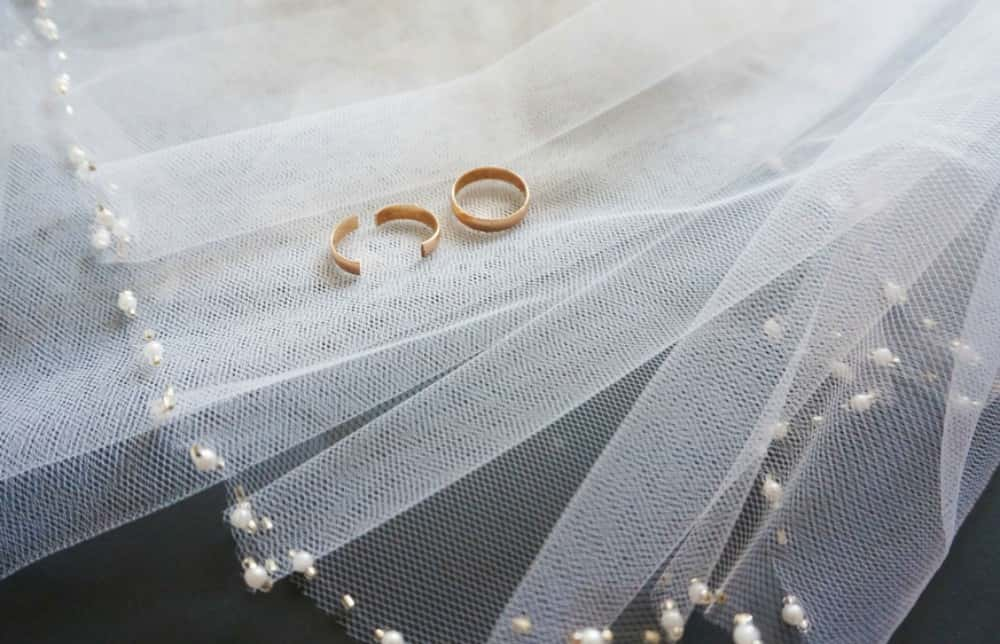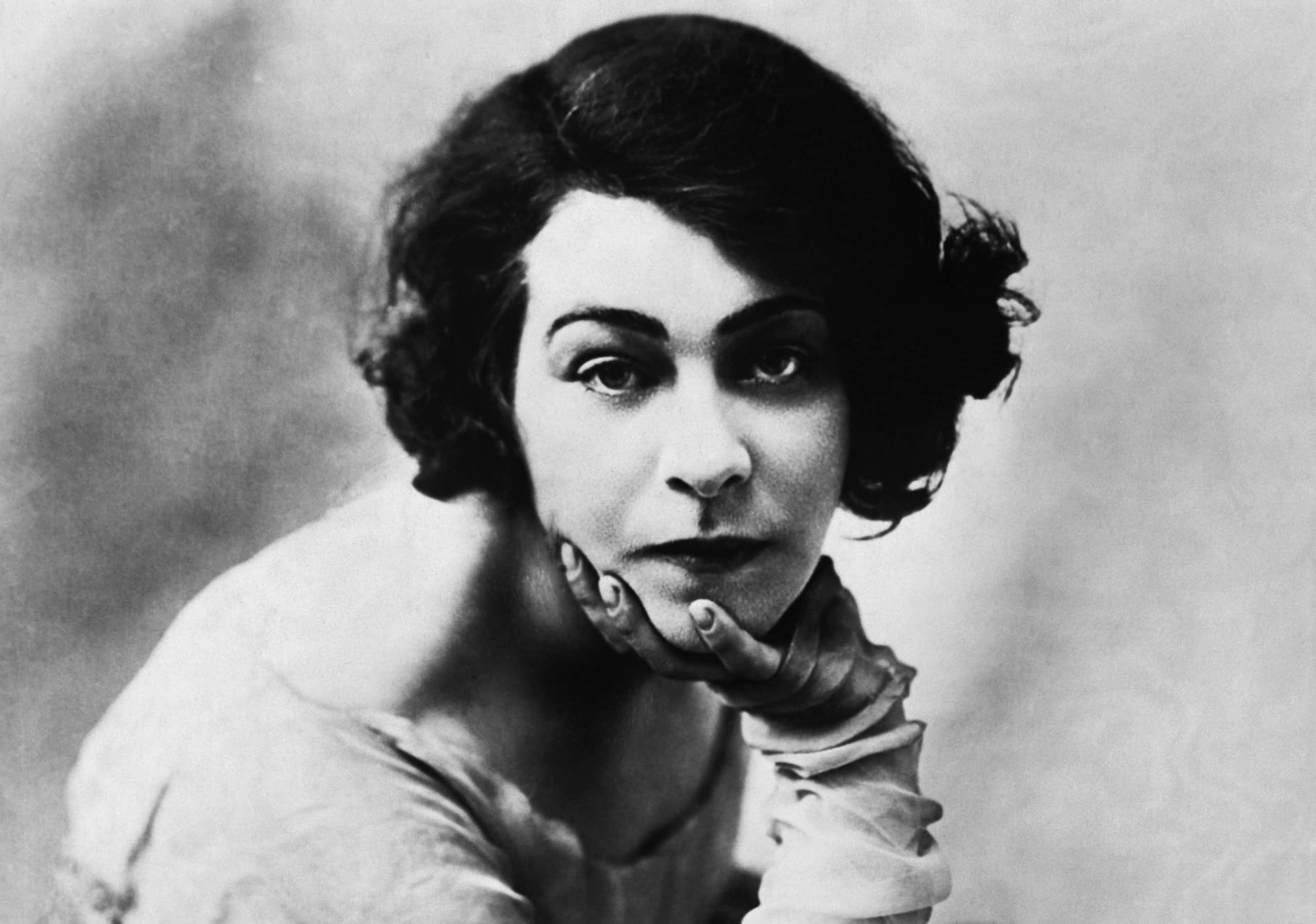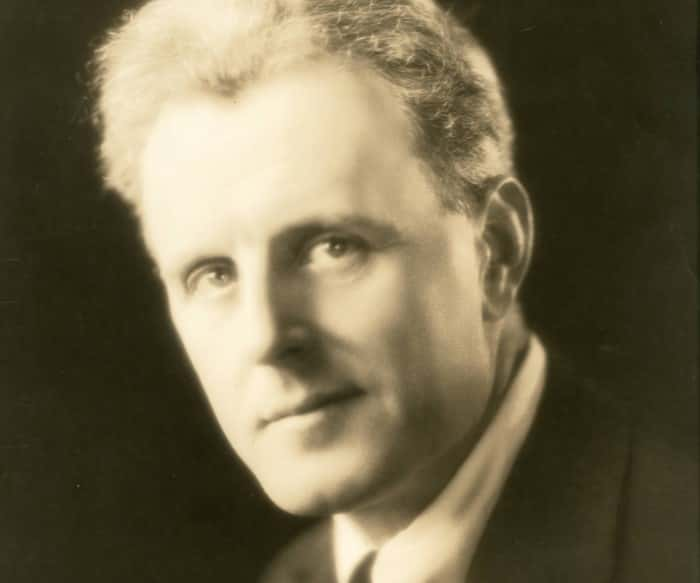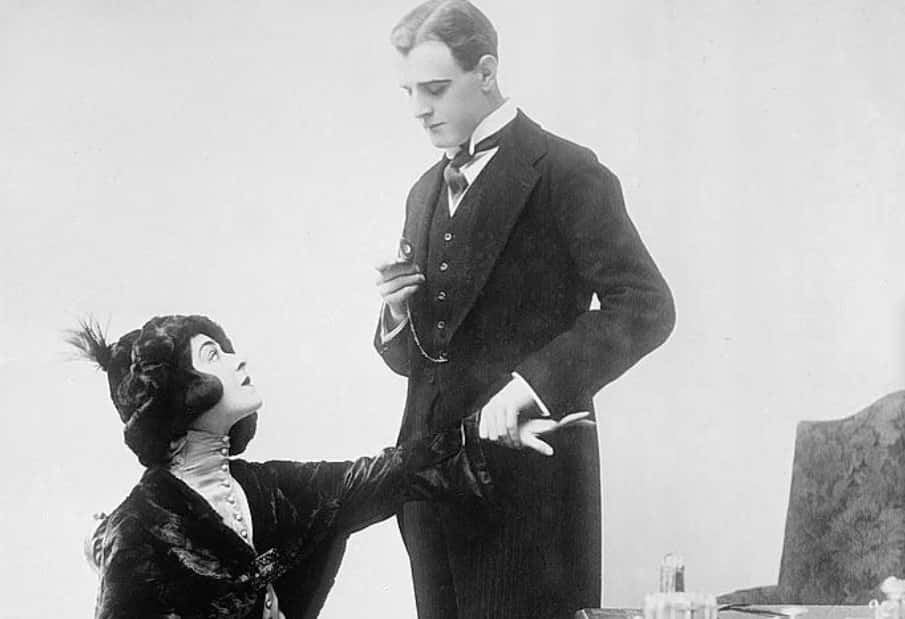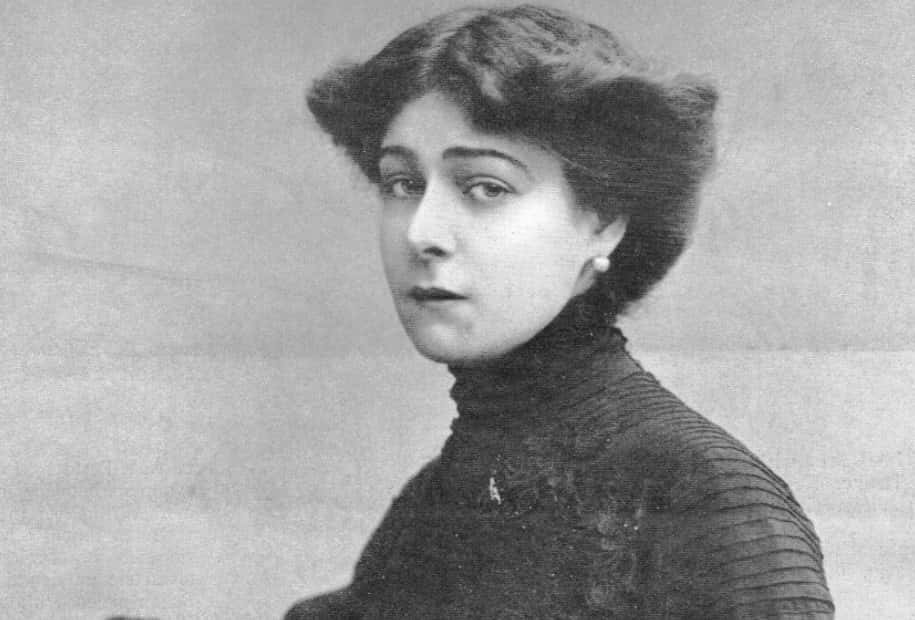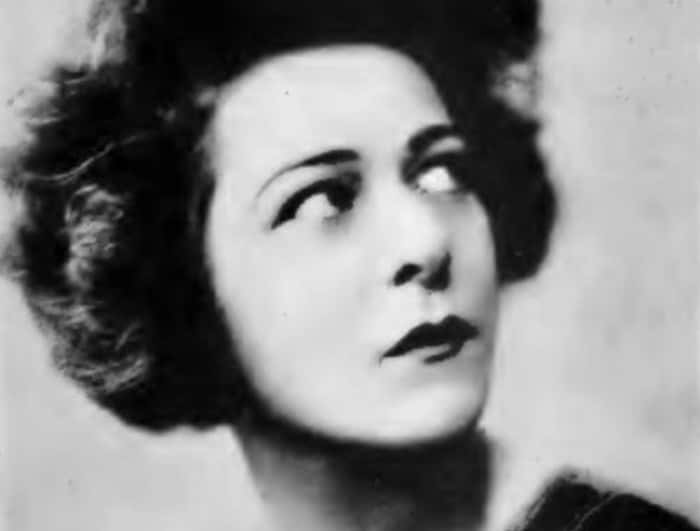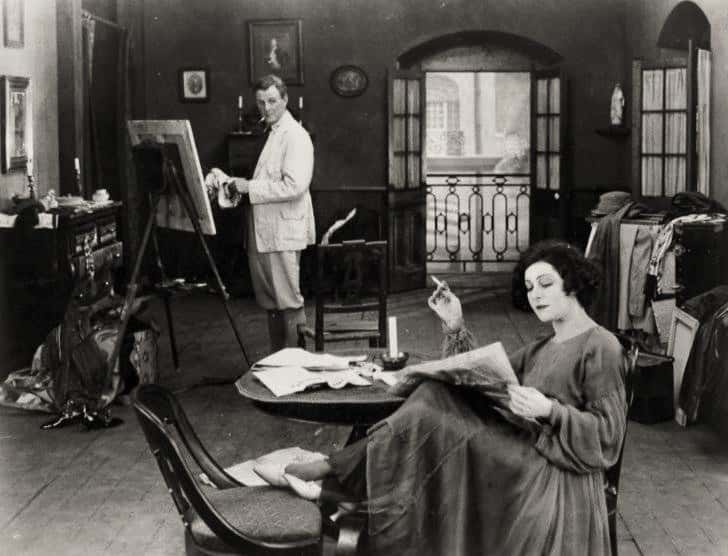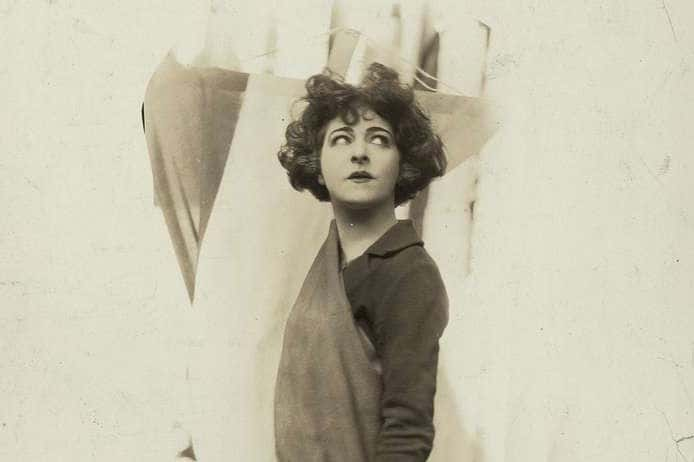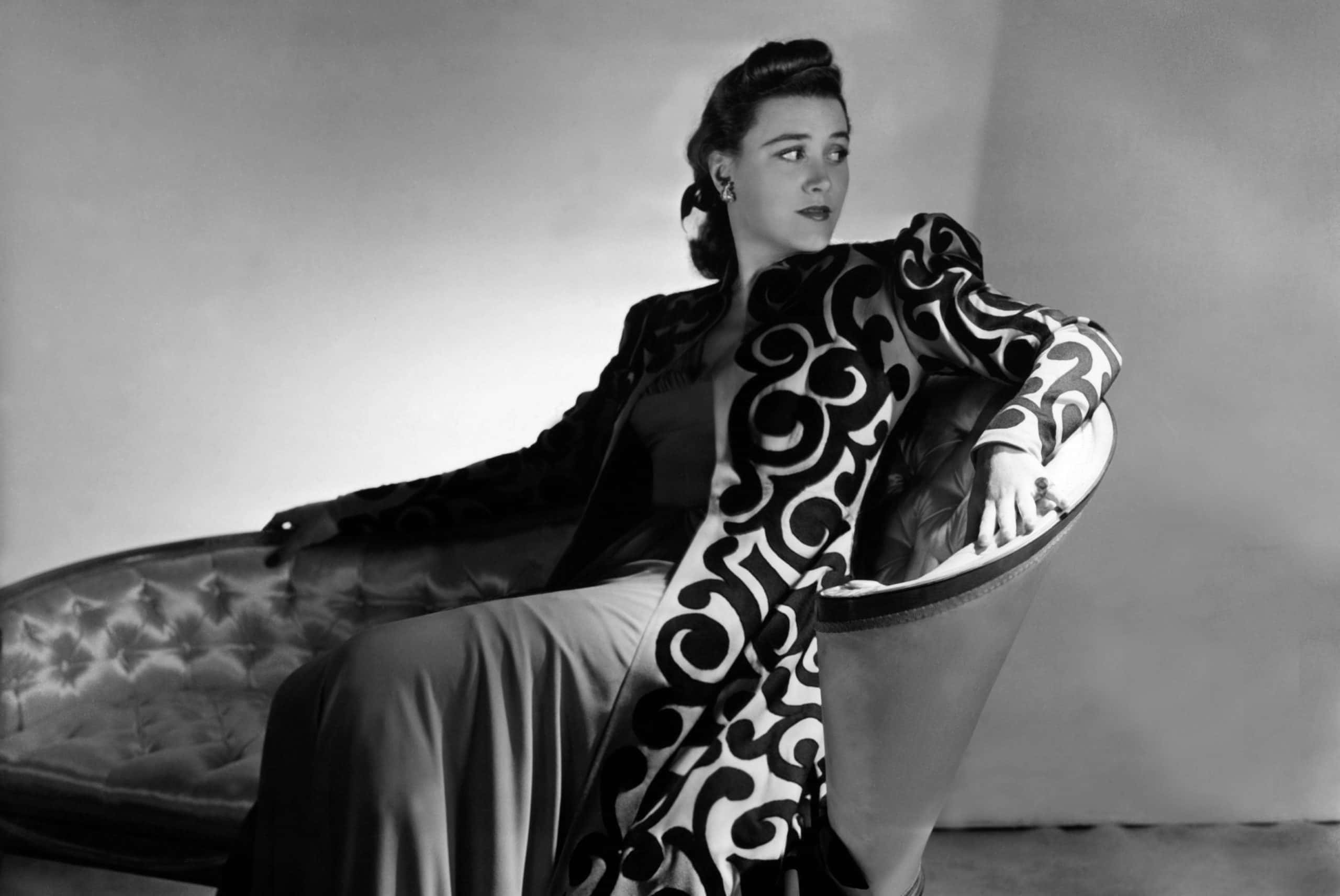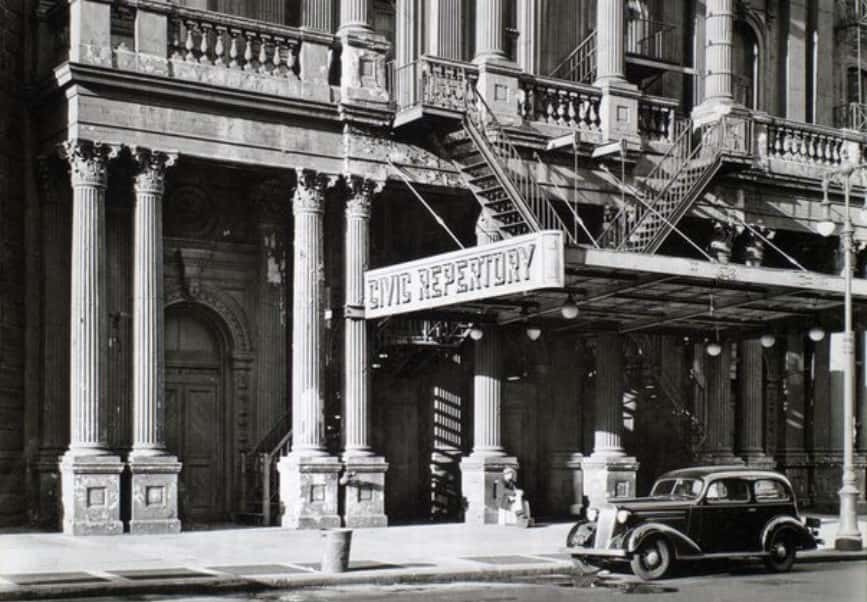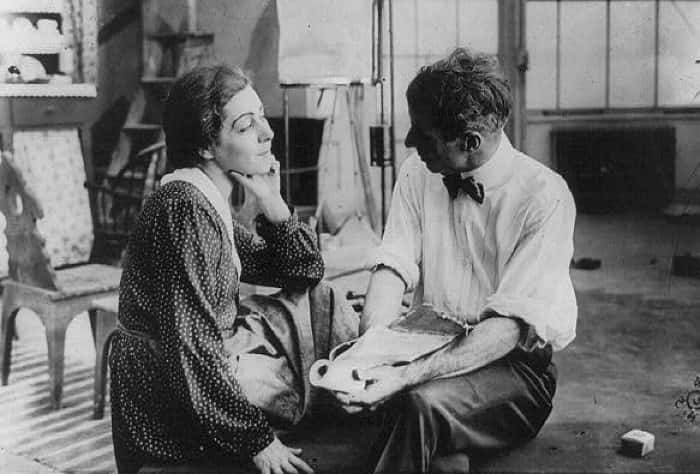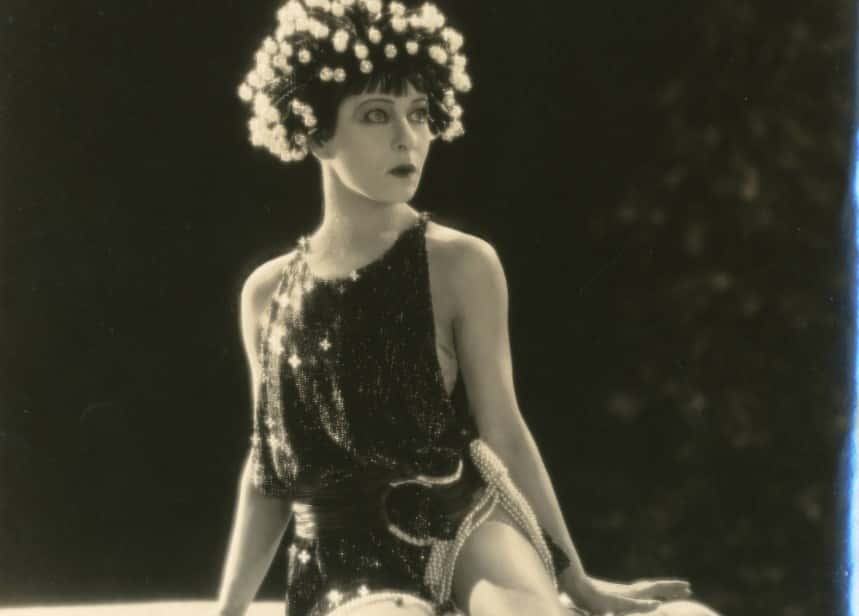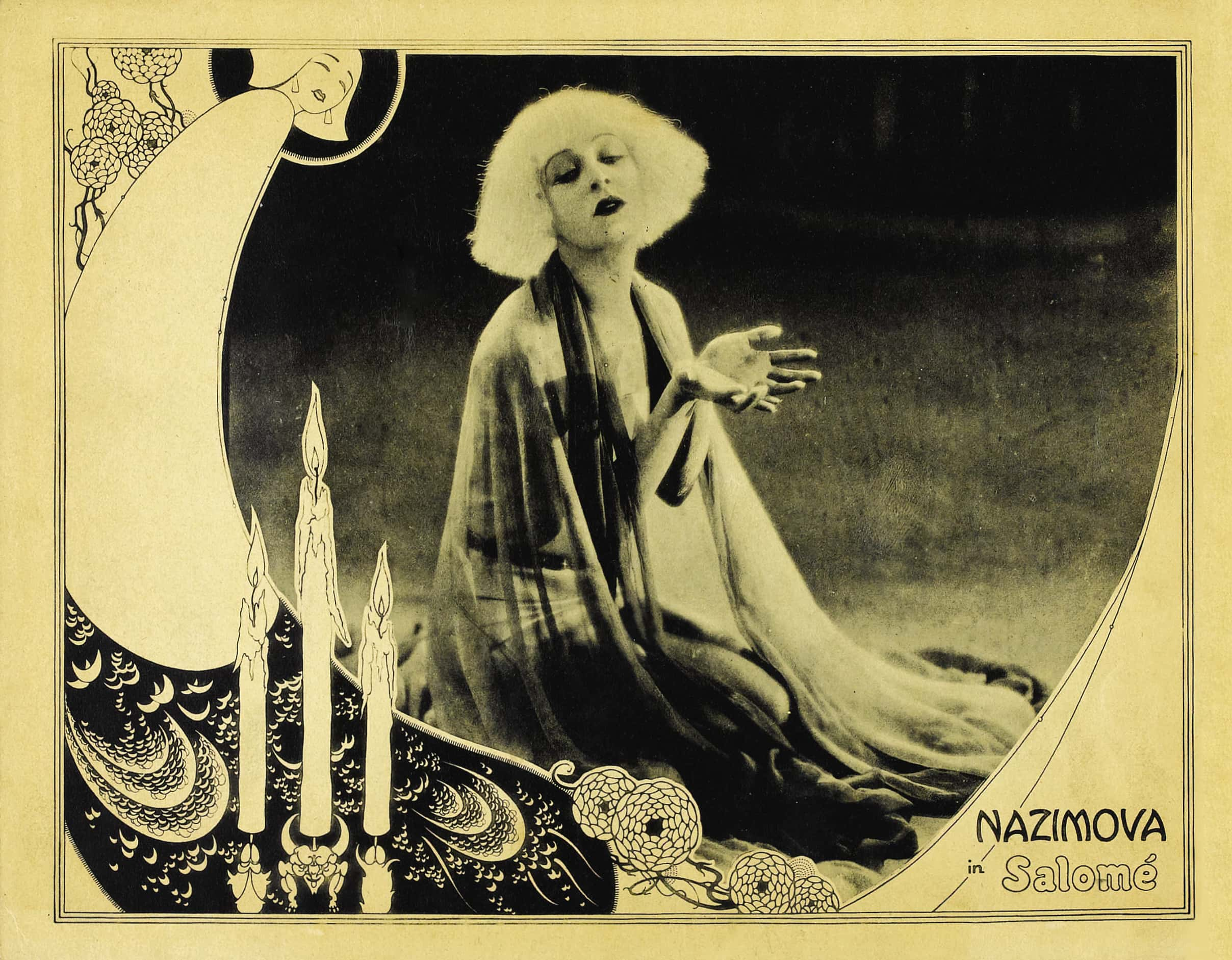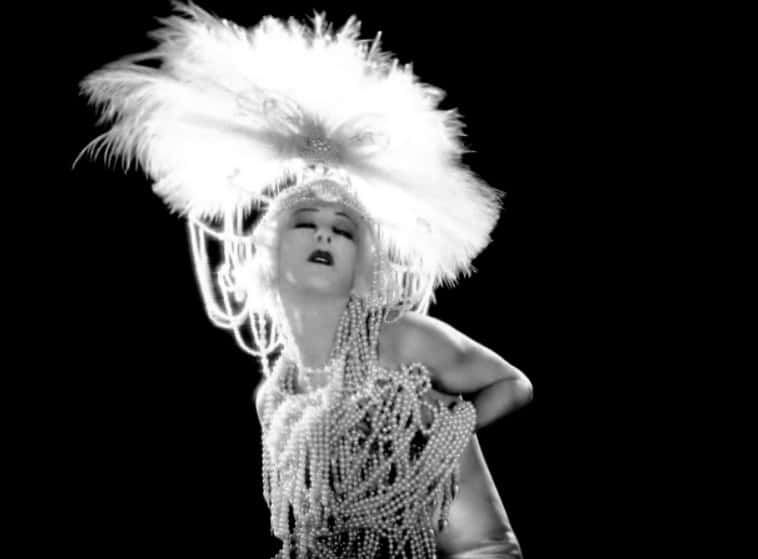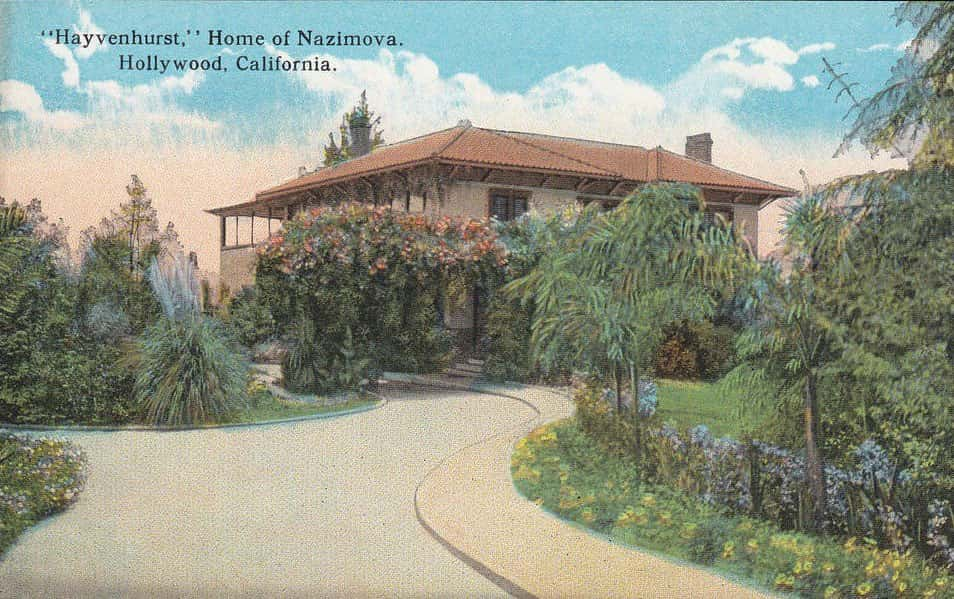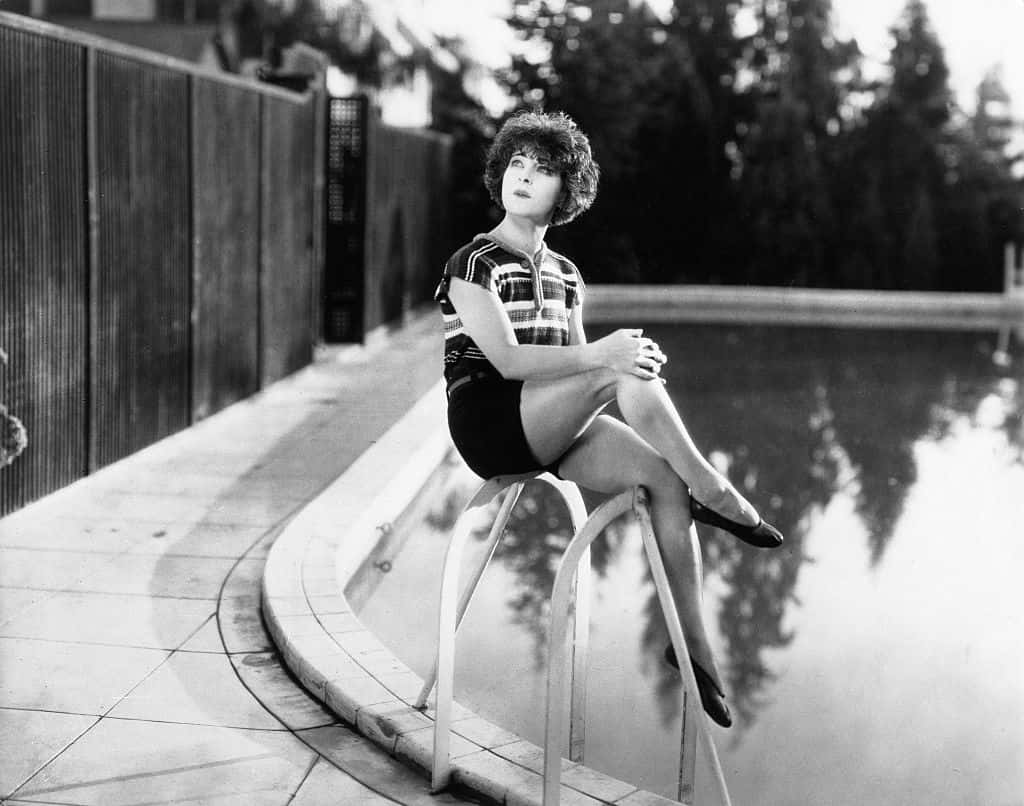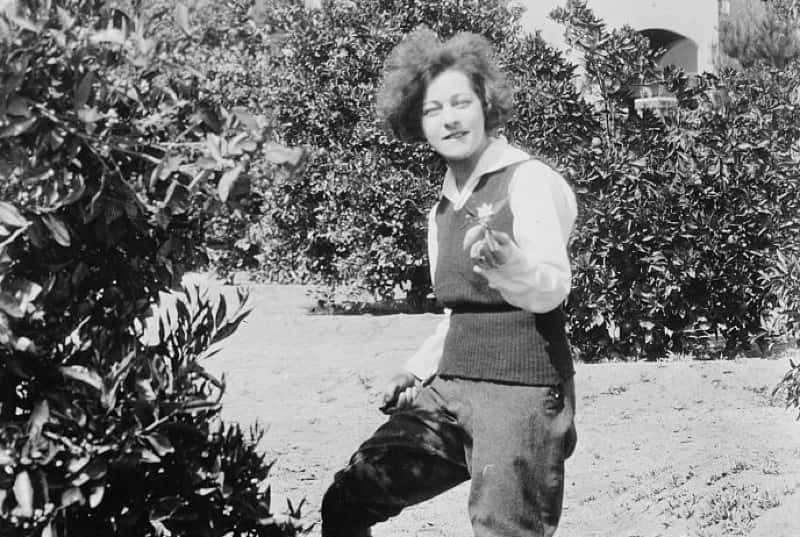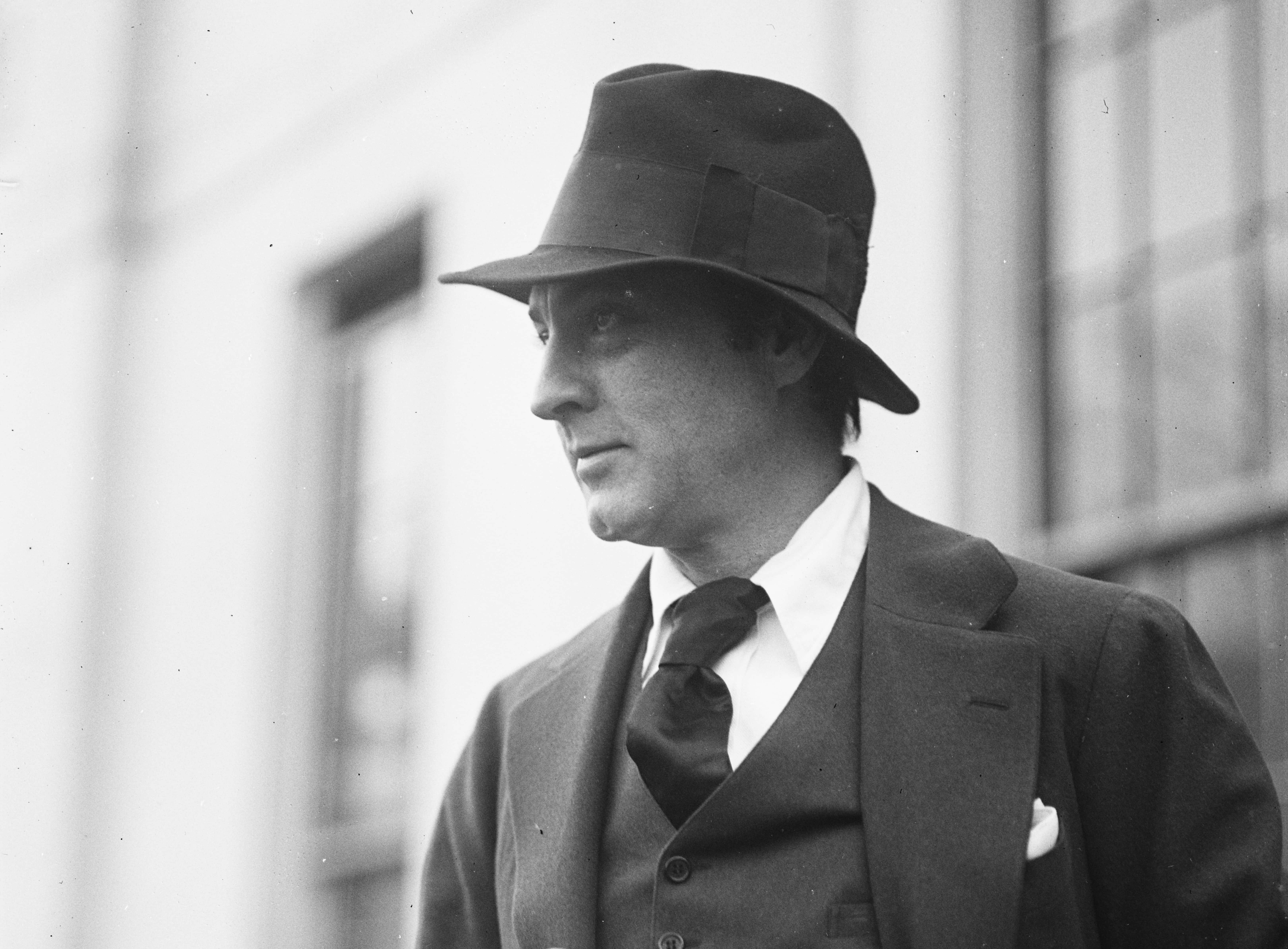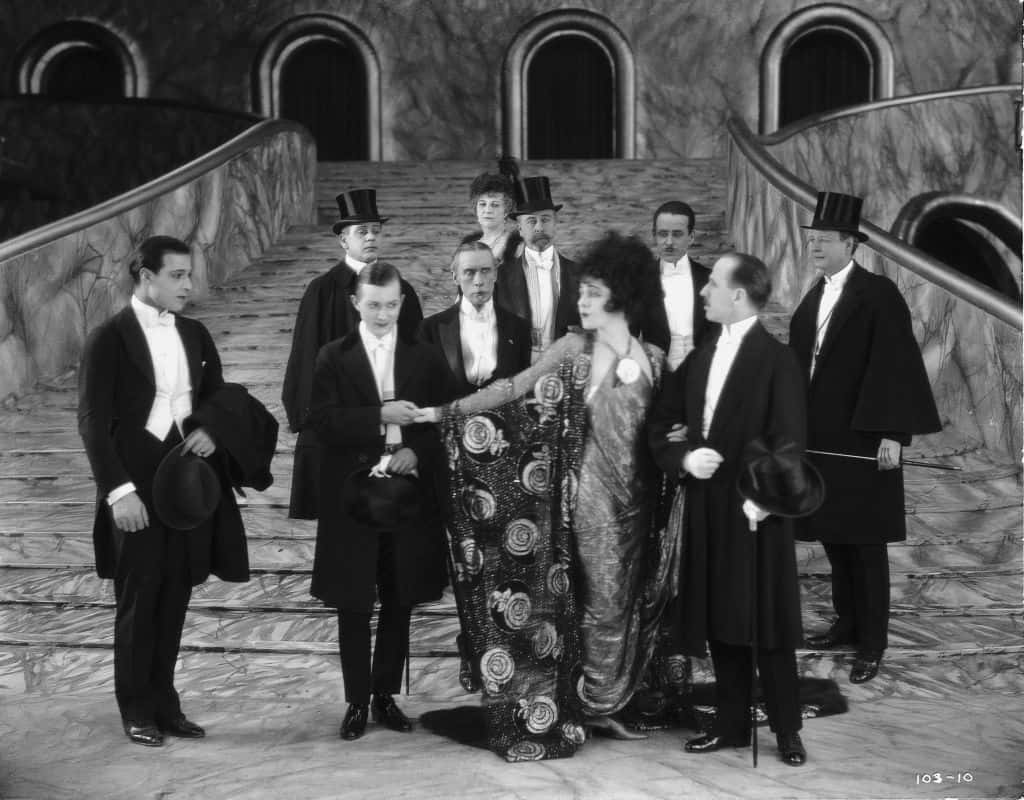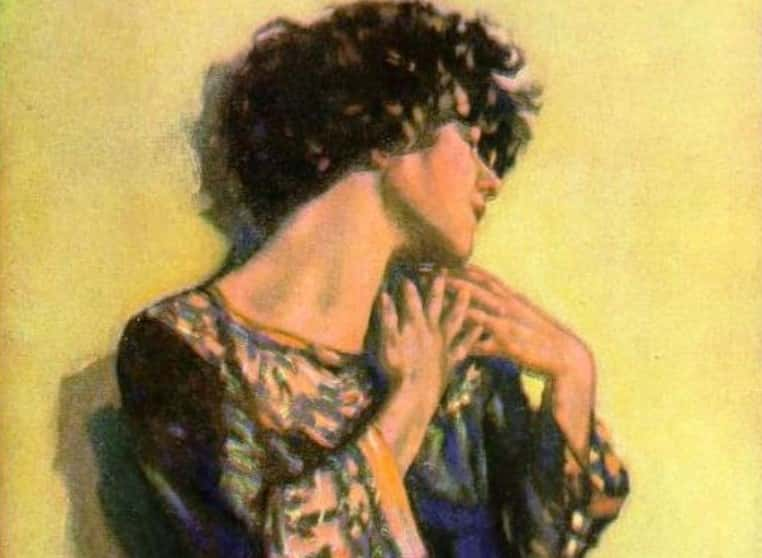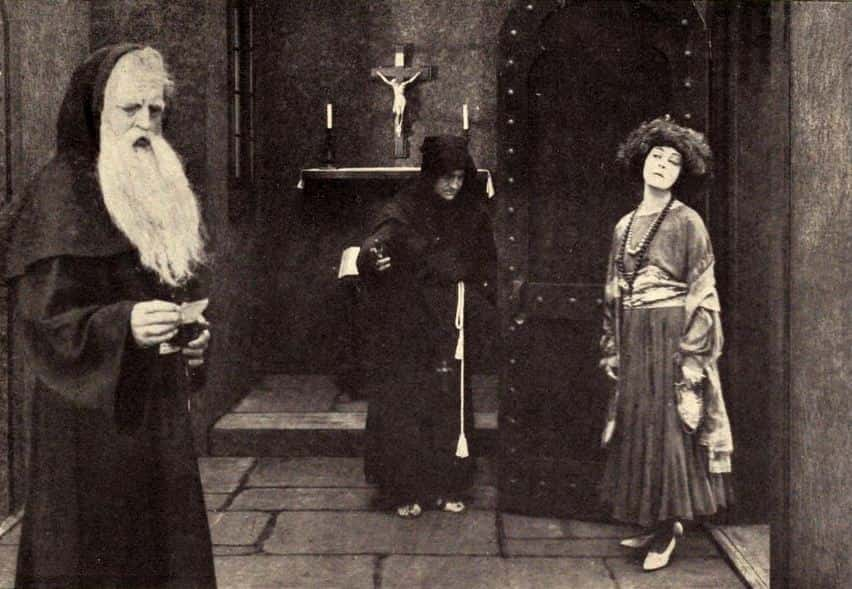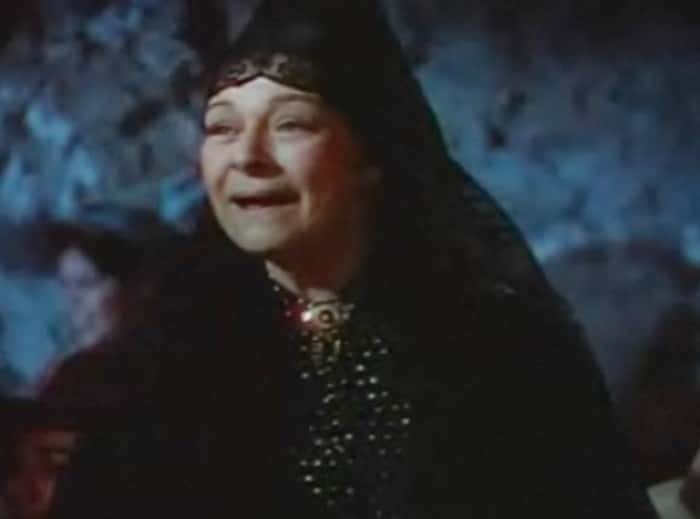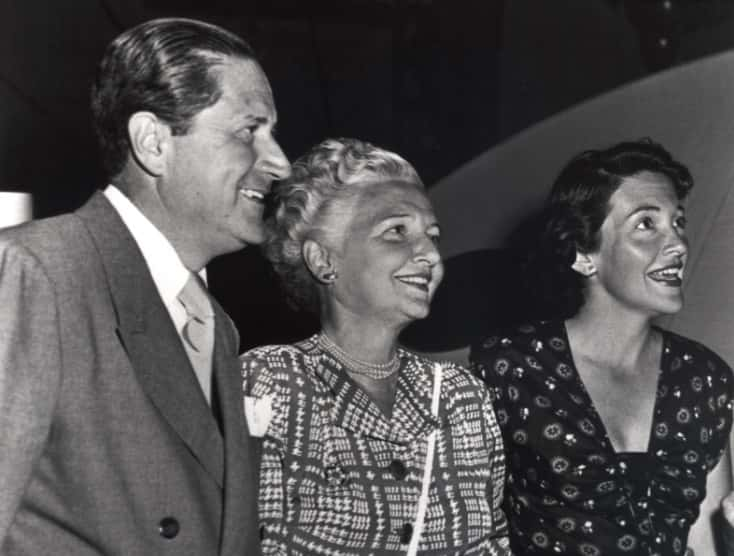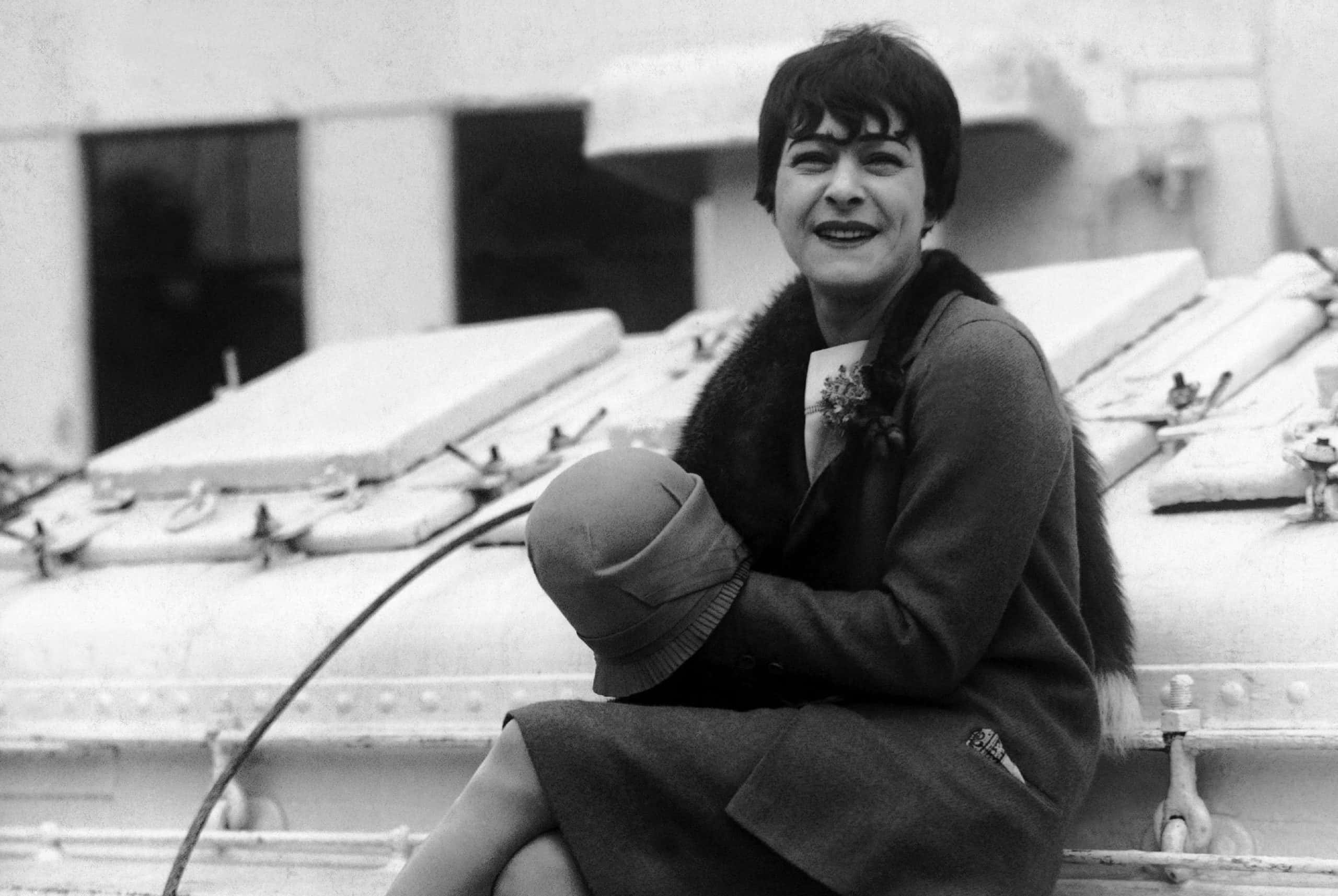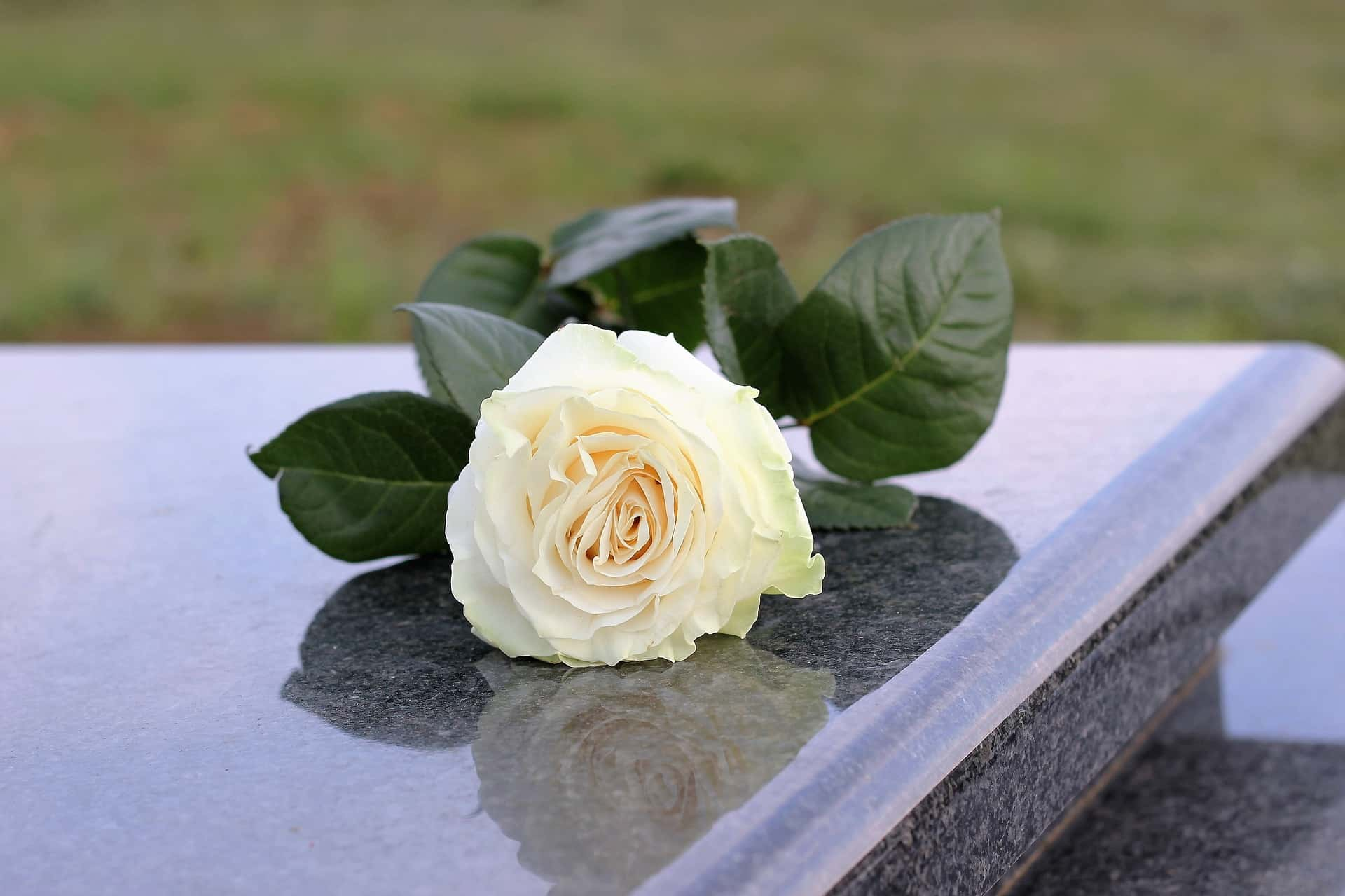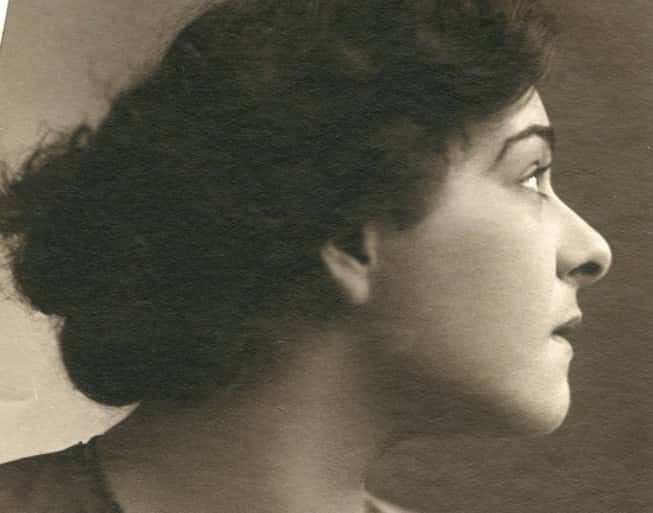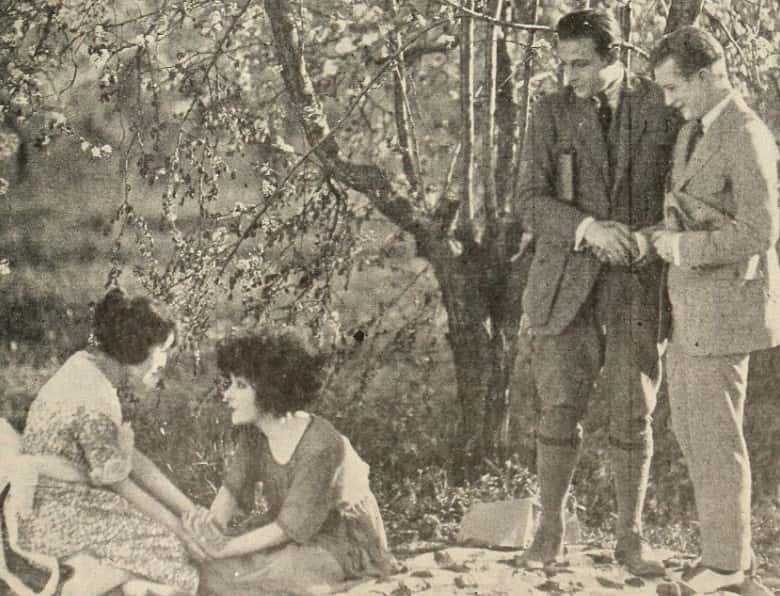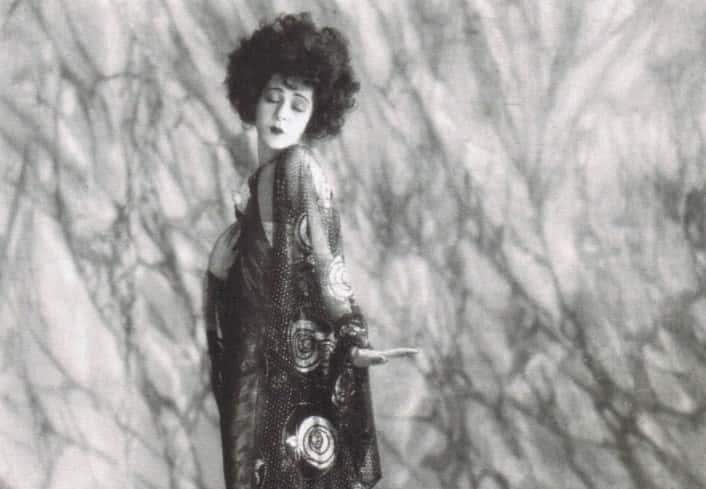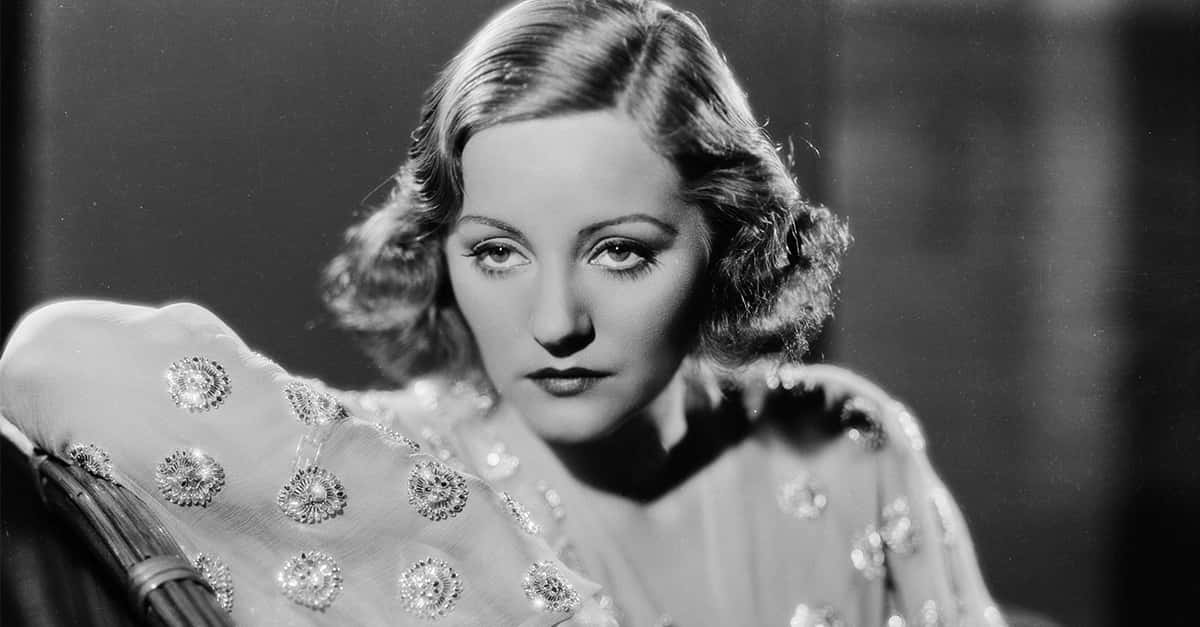The Mother Of Sapphic Hollywood
To watch Alla Nazimova inhabit a multitude of characters on screen is to witness a woman with undeniable stage presence, risk-taking sensibilities, and enigmatic reach. Ferociously independent, Nazimova consistently tread an ambitious and scandalous path that led her to equal parts success and criticism.
1. She Endured Years Of Torment
Born in Russia in 1879, Alla Nazimova witnessed her parents’ deeply unhappy marriage and suffered abuse at the hands of her father. According to one report, he cruelly twisted and broke her arm. But this was just the beginning of the nightmare. When she was eight, her parents separated and her childhood became a dark blur of foster homes, strange relatives, and boarding schools.
With only herself to depend on, Nazimova forged a course toward a self-made future.
2. She Re-Invented Herself
Does taking a new name mean you’re starting a new life? In Nazimova’s case, her name change spurred the beginning of a new chapter. Born as Adelaide (Marem-Ides) Leventon, she combined Alla (short for her given name) with Nazimova—a fictional name borrowed from the heroine of the Russian novel Children of the Streets. This change marked a turning point in an otherwise dejected childhood.
3. She Had Star Power
Even before she found theater, Alla Nazimova captured her audiences with the violin. At the age of 11, she played in an orchestra occasionally conducted by the likes of Rimsky Korsakov and Tchaikovsky. Some even claimed she was a prodigy. As a girl destined to light up the silent screen, it’s interesting to note how sound impacted her early self-expression.
4. She Knew Exactly Who She Wanted To Be
As a teenager, Nazimova began pursuing her interest in theatre by taking acting classes—a choice that raged against her father’s wishes. After joining Constantin Stanislavski’s Moscow Art Theatre, her life changed forever. She studied his “method style” along with his company of actors, honing her craft and planning her future. Her time spent in this institution gave her the tools necessary to succeed and meet her destiny.
5. She Ventured Into The Unknown
With her exceptional talent, Alla Nazimova skyrocketed into the spotlight. By 1903, she was already a massive star in Moscow and Saint Petersburg, and only three years later she and her boyfriend Pavel Orlenev moved to New York City—a city that loomed over them with the promise of possibility or ruin. She had no idea how infectious her appeal would be.
6. She Was More Than A Pretty Face
Due to her constant evolution, Nazimova’s mysterious character is hard to pin down. In the words of biographer Gavin Lambert, she was “not a great beauty, but a compelling actress with personality.” Stubborn, ambitious, and bold—with an acute attention to detail—she struck people with her ability to inhabit her characters so completely. This charisma, paired with a striking set of violet-colored eyes, was a recipe for stardom.
7. She Was Fearless
Her first venture in a new city was quite ambitious. She and her boyfriend Orlenev, himself an actor and producer, attempted to open a Russian-language theatre on the Lower East Side. When the project failed to gain traction, Orlenev returned to Russia while Nazimova persevered. Her ability to take failure in stride often led her to greater glory down the road.
8. She Conquered A Herculean Task
When she arrived in America, Nazimova could only speak Russian. To break into English-speaking roles, conquering the English language was her next great challenge. The Schubert Brothers were so impressed with her that they decided to hire her under the condition that she learn English in only six months! It was to the credit of one woman, that Nazimova met her goal…

History's most fascinating stories and darkest secrets, delivered to your inbox daily.
9. She Had An Amazing Teacher
Caroline Harris was the valuable tutor who gave Nazimova English lessons and prepared her for her debut in record time. This rigorous learning was the key to a performance that would change their lives forever.
10. She Blew Them Away
In 1906, Alla Nazimova made her Broadway debut with the title role in Hedda Gabler, attracting the attention of critics and fans alike. This was her very first English-language premier and despite being a newcomer on the scene, Dorothy Parker described her as the finest Hedda Gabler she had ever seen. Nazimova was an absolute sensation!
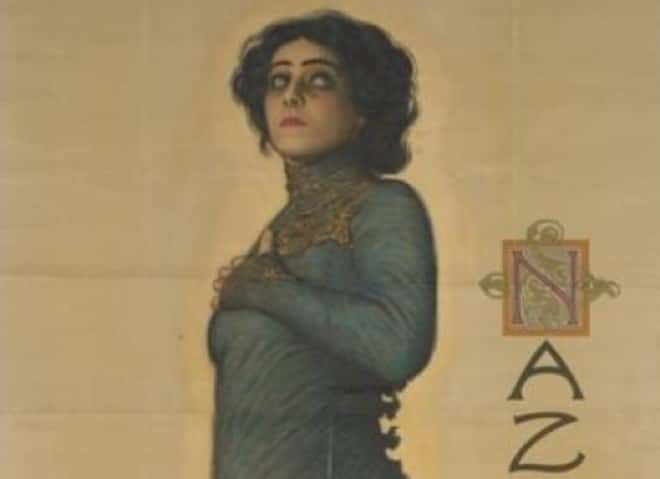 Wikimedia Commons
Wikimedia Commons
11. She Lit Up Broadway
Live theater was Nazimova’s first love, and the audience loved her back. They even named a theatre after her: Nazimova’s 39th Street Theatre. She remained a huge Broadway star for years before turning to silent film, a fresh territory for her to flex her creative chops.
12. She Was A Feminist
Nazimova's silent film career began with a film that pushed back against a number of her previous roles as the romanticized femme fatale. In War Brides, Nazimova constructed a brand-new image—that of a strong feminist. She told the press that by playing the role of a woman of suffrage she was contributing to “the womanhood of the world.”
13. She Inspired Greatness
After sharing the screen with Richard Barthelmess in War Brides, she encouraged him to audition for more films. Others took notice of his potential and he later became a massive star. Without Alla Nazimova, other greats, such as Tennessee Williams, may never have reached their full potential. She took credit for inspiring Williams to become a playwright—a bragging right not easily forgotten.
14. She Planted Roots
After learning English and cutting connections with her last Russian boyfriend, Nazimova’s future rooted itself in America. In 1927, she became a naturalized citizen of the United States. Her assimilation and hard work ingratiated her to the American people—she could be whomever they needed her to be. And depending on the day, she could steal the show or blend in with the crowd.
15. She Yearned To See Herself
Everybody has toyed with the fantasy of becoming a fly on the wall, anonymous and sponge-like, soaking in everything from a disguised vantage point. Perhaps Alla Nazimova also liked this idea, as she consistently appeared in the media as an actress “caught” attending the theatre with the general public so that she could watch herself on screen.
16. Her Past Was A Mystery
Before the peak of her success—even before Pavel Orlenev and her time on Broadway—Nazimova married a man named Sergei Golovin in Russia. She left him almost immediately, and they never reunited. When she moved to the United States, her lips were sealed—not a soul knew that Golovin existed. But that's not the only secret Nazimova kept. With her new life, came new intrigues.
17. She Never Loved Her Husband
In 1923—24 years after her wedding—Nazimova finally procured a divorce from Golovin. She didn’t travel back to the Soviet Union to settle her affairs but had the paperwork sent overseas. From the beginning, their relationship was void of any real closeness or love, and this official separation was a long-time coming. During her entire time in the US, Nazimova harbored a secret from her loving public…
18. She Lived Two Lives
After 1912, Alla Nazimova pretended to be married to a different man—British actor Charles Bryant. To maintain the ruse of her “fake” nuptials with Charles, she hid her first marriage from the scrutiny of proper society. The public marriage was completely for show, and to maintain its legitimacy she had to keep her marriage to Golovin under wraps. Sound dizzying? Well, the plot thickens…
19. She Kept A Scandalous Secret
Turns out she had good reason to parade Bryant around. She was trying to bury the inexplicable truth—that her marriage was a “lavender marriage”—a union of convenience to hide the true orientation of one or both partners. And this marriage? Well, it did NOT end well.
20. She Lied To The Public
Most lies are built on a foundation of fragility and it wasn’t long before Bryant tilted the balance. He shocked the press, and Nazimova herself, by marrying a 23-year-old girl in Connecticut. Once people realized that Alla and Charles had in fact never been married and that the entire relationship was a sham, they fed on the marital scandal and turned on Nazimova.
This unpalatable revelation damaged the trust of her fans and severely damaged her career—but it was only the beginning.
21. She Was A Lesbian
Being a lesbian during the early 20th century, smack-dab at the center of Hollywood, couldn’t have been easy. With the threat of a homophobic public hovering over marginalized groups, privacy reigned supreme. So, yes. Nazimova had secret affairs and lovers, some rumored and some confirmed. One of these confirmed lovers being none other than Oscar Wilde's niece, Dolly Wilde.
22. She Coined A Popular Phrase
Some of us may think “sewing circle” refers to a group of women who come together to...sew. Well, think again! Its original usage comes directly from Alla Nazimova, and it was a code to refer to lesbian or bi actresses who concealed their true identity. It was about lesbians communing under cover of a seemingly domestic pursuit—cheekily subversive and reeking of pure genius.
23. She Disguised Herself
Oh, the power of a name! This is something Alla Nazimova understood in spades. She took on many names throughout her life, including male pseudonyms for some of her professional work. For screenwriting, she inhabited Peter M. Winters and for a few of her films she took her partner’s name, Charles Bryant. But Nazimova’s range of personas, especially in her romantic life, proved detrimental to her success.
24. She Embraced Her Fluid Sexuality
When she was 42, Nazimova set her eyes on a 20-year-old man named Paul Ivano. Although he claimed their affair lasted only six months and that “Alla preferred women most of the time,” it became a repeated tryst, and they were on and off for many years. With her lively track record, this affair simply punctuated Nazimova’s eventful love life.
25. She Fell For A Famous Painter
Magical and ethereal herself, is it any wonder that Alla Nazimova took up with the beautiful Magic Realist artist and Surrealist painter, Bridget Tichenor? An art collector, Edward James, introduced the two lovebirds and as rumor had it, Bridget was one of her favorite lovers. ‘Twas a romance that no doubt ruffled the feathers of her most enduring partner…
26. She Found “The One”
Nazimova found true love in silent screen actress and theatrical benefactor Glesca Marshall. Cast in the same production at the Civic Repertory Theater, the pair met and their friendship flourished. Marshall was a huge Nazimova fan before they became romantically involved, and their closeness only deepened as they worked together.
Despite whispers of infidelity and romantic collusion, Marshall stayed with Nazimova ‘til the very end.
27. She Was An Entrepreneur
For her debut film, Nazimova raked in $1,000 per day. A year later, she signed a contract with Metro Pictures (a precursor to MGM) that included a weekly salary of a whopping $13,000. After establishing her name in New York and then moving to Hollywood with heavy pockets, the possibilities branched out before her.
She started her own production company, Nazimova Productions, where she finally had free reign to do things her way. She could try new things and test the limits of the audiences she created for—and boy, did she...
28. She Was A Risk Taker
Despite the dip in popularity that dogged her marriage scandal, Nazimova took on aesthetic risks that attempted to capitalize on a gay sensibility. Operating under the hope of sensational content appealing to mainstream audiences, she developed daring filmmaking techniques heavily influenced by Art Nouveau—a movement characterized by curving natural forms.
Her films became a direct reflection of her bohemian sensibilities. Unfortunately, the world wasn’t ready for her contributions…
29. She Was Controversial
Due to a string of unsuccessful films, Metro told Nazimova to only draw her scripts from literature in order to increase the chance of positive reception. She chose to adapt Aphrodite—a controversial novel that inspired a controversial script. It never made it to curtain call. Metro executives canceled production plans after reading the salacious screenplay by June Mathis. When they read it, they couldn't believe their eyes.
After telling Nazimova to create more crowd-pleasing fare, they discovered a story full of lust and violence. But Nazimova wasn’t finished with experimenting and went on to produce her most iconic film yet.
30. She Believed In Herself
When every major company refused to finance her productions of A Doll’s House and Salomé, Nazimova decided to use her own money to back her projects. They warned her that both films were unlikely to succeed, but the advice fell on deaf ears. In 1923, equipped with $300,000, a bank loan of $100,000, (and an iron will) she began work on her passion projects.
This expensive venture was a testament to her self-belief and was—above all—a labor of love. Whether the investment would pay off was another question entirely...
31. She Lost Out At The Box-Office
As predicted, Salomé—based on an Oscar Wilde play—received harsh reviews from critics and audiences alike. Its ostentatious and slightly risqué treatment of a Biblical tale didn’t quite feed the appetites of her audiences, and it was a commercial failure. Some movies are simply made at the wrong time, and unbeknownst to Nazimova, Salomé’s popularity would grow in time…
32. She Created A Cult Classic
Time will always tell. Today, Salomé is considered a feminist milestone in film. As film historian Patricia White puts it, Salomé stands today as a unique effort to produce a “female movie modernism.” In a fashion that would no doubt please its creator, various edited versions of the film played in festivals and underground contexts on 16mm for years.
33. She Had A Sense Of Humor
In 1919, Nazimova purchased a 2.5-acre estate on Sunset Boulevard and then made the most punny power move on the strip: She named her mansion The Garden of Alla. Though it began as a joke, the name stuck and imbued her residence with whimsy and mystery that mirrored her very character. Soon, it would become one of the most iconic—and notorious—establishments in the already scandalous Sunset Strip.
34. She Owned A Magnetic Pool
Alla Nazimova had something nobody else in Hollywood had—the largest pool in the city. And it wasn’t just any pool, but a state-of-the-art commission constructed in the shape of the Black Sea. On warm nights, those in her female inner circles congregated around the water, engaging in conversation considered inappropriate by the outside world.
35. Her Home Was A Safe Haven
To be a minority in the 1920s—especially as a high-profile celebrity—was dangerous. Nazimova’s home was a refuge for those who wanted to escape the prying eyes of the public and embrace their true selves. It was a place to nurture one’s career and love life. “Lavender Hollywood” often considered the Garden of Alla its center.
36. She Partied Hard
Along with her scintillating love life, mystery shrouded Nazimova’s colorful social life and as a result, countless rumors took flight. The fact that she constantly held extravagant parties at the Garden of Alla didn't help slow down the gossip mill, either. According to Time magazine, "Through the intoxicating Twenties and Thirties, the Garden of Alla was more house party than hotel. Robert Benchley was resident clown; John Barrymore kept a bicycle there so as not to waste drinking time walking between the separate celebrations…”
She was an entertainer at heart, and the raucous parties inspired countless others—even when she no longer owned the iconic establishment.
37. She Hit Rock Bottom
After her deceptive marriage to Charles Bryant came to light, Nazimova's career took an upsetting nosedive. By the beginning of 1926, she hadn’t worked for an entire year. Despite the lack of income, she continued to spend $1,000 a month to upkeep her homes and $500 on her mother, aunt, and cousin. Desperate for money, she took a harder look at what she already had, and made a surprising decision…
38. She Worked With What She Had
Alla Nazimova began renovations on her home and in 1927, The Garden of Alla transformed into a hotel. But Nazimova was not a born hotel manager and eventually sold the property after her business partners made a series of financial mishaps. She returned to the Broadway Stage hoping to inject life into her fading career. Though she gave up the renowned hotel, her impact on the culture surrounding it lived on.
39. She Blended Fact And Fiction
Just as her name is a marriage between her given name and a fictional heroine, The Garden of Alla blends her name with the title of the best-selling 1905 novel The Garden of Allah by Robert S. Hichens. By simply removing the “h” she turned fiction into her own reality. This illuminates Nazimova’s cleverness and love of literature, but also a life defined by reinvention.
40. She Was Ahead Of Her Time
While taking control of your own image is the currency of today’s influencers and Hollywood elite, it wasn’t very common in Nazimova’s day. Her film career boasts a series of strategic decisions that helped reinvent her public persona. She understood the power of celebrity image and made personal sacrifices to maintain it. Her strong female roles in pictures such as War Bride, Camille, and Salomé enhanced the feminist image that would one day become her legacy.
41. She Was A Renaissance Woman
Was there anything this woman couldn’t do? Capable of taking on any role in the fictional realm, she also proved herself behind-the-scenes. She took on a variety of responsibilities relating to film production—occupations mainly filled by men at the time. Nazimova was director, producer, editor, screenwriter, and lighting designer. She even copped a credit for costume design for a film called Revelation.
42. She Gave Her Lovers A Leg Up
During her most successful years, Nazimova yielded a great deal of power in Hollywood. She had a confirmed affair with Rudolph Valentino’s wife Jean Acker and a rumored affair with his other wife Natacha Rambova. She took these women to new places, both behind closed doors and in their film careers.
43. She Returned To Her First Love
Even today, Hollywood isn’t always kind to the aging actress. Grasping for new avenues to generate income, Nazimova returned to the stage where she garnered generous praise for a few of her productions. Critic Pauline Kael described her acclaimed performance in Ibsen’s Ghosts as the greatest she had ever seen on the American stage. Nazimova still had it in her.
44. She Never Gave Up
If Alla Nazimova hadn’t made two films in the 1940s, we wouldn’t be able to witness her art on sound film. Thankfully she starred as the mother in both Escape (1940) and Blood and Sand (1941). Despite working into her sixties, her return to film didn’t solve her financial troubles and sadly, this stress followed her into her final years.
45. She Had Unexpected Connections
Nazimova had an interesting connection to a key family in US politics...She was extremely close to the stage actress Edith Luckett—mother of the future US First Lady Nancy Reagan. When Nancy was born in 1921, Nazimova became her godmother. Both Edith and Nazimova maintained their friendship until her death, proving that connections can be made in the most unlikely of places.
46. She Was A Creature Of Comfort
When Nazimova moved back to Hollywood in 1938 she rented a villa at the hotel she used to call home—The Garden of Allah. In 1944, Nancy Reagan visited her godmother in Villa 24. When she recalled the visit, she noted “it was so small, nicely furnished but...How terrible it must be for her after all that fame and glamor.” Like herself, the hotel room was a mere remnant of its former splendor. Her career was officially over.
47. She Was Penniless
After living such a rich and varied life, Nazimova’s final years are framed in faded shades—an echo of a gilded moment in time. She stayed at the Garden of Allah until she suffered a coronary thrombosis in 1945, passing away at the age of 66. She left behind a legacy that seemed impossible to forget. Sadly, this was not to be.
48. She Wanted Her Story Told
There’s nothing sadder than a life cut too short and a story gone untold. In parts of her unpublished memoir, she reflects on her traumatic childhood and its influence on her lesbian self-styling and subsequent denial to the public, as well as its direct connection to her immigrant story and assimilation. One critical appreciation describes her as “the founding mother of Sapphic Hollywood”—a regal title for today’s lost muse.
49. She Remains A Mystery
One cannot deny the power of Nazimova's biographical narrative—a trail that finds connections between Alla Nazimova and almost every famous lesbian in Hollywood, as well as gay cultural icons like Oscar Wilde, Rudolph Valentino, and Montgomery Clift. It’s inherently sensational and mysterious at the same time.
Even so, there are so many archival materials about Nazimova that have yet to be cataloged—hundreds of pages! There are still pieces of the puzzle missing.
50. Hollywood Remembers Her
Nazimova’s career took the film industry by storm and today she is honored with the quintessential symbol of recognition—a star on the Hollywood Walk of Fame. Traversing theatre in her homeland and then traveling overseas to take her chances in America, Alla Nazimova was not only a starlet, but also a feminist risk-taker and artist.

